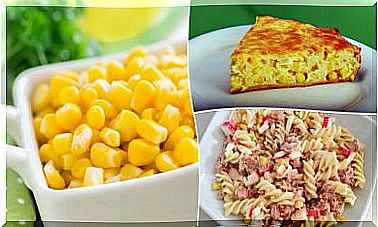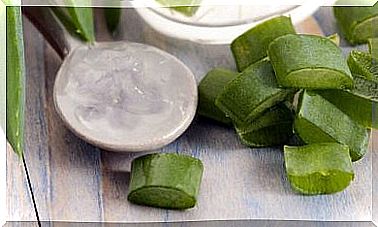Include Zinc In Your Diet To Delay Alopecia
It is not necessary to wait for alopecia to eat foods rich in zinc. It is convenient to start including them in the diet before symptoms such as capillary weakness or general lack of energy.

Are you suffering from alopecia? Surely you have tried many treatments to reduce hair loss and they have not given the results you expected. But don’t be discouraged.
There are studies that claim that those with low levels of zinc are more prone to alopecia. In the following article we will tell you how this nutrient can help you have stronger hair and in which foods zinc is found.
What to know about zinc?

Zinc is an essential mineral for the human body. It is found in all cells in small amounts and helps fight the effects of free radicals in the body.
Some of the properties of zinc are:
- Increase defenses.
- It can delay alopecia.
- It works against herpes simplex.
- It allows development and growth.
- Delays the appearance of tartar on the teeth.
- Helps wounds heal faster.
- It benefits people with vision problems.
- Treats skin problems like acne, eczema, or wrinkles.
- It is involved in various metabolic processes such as the manufacture of DNA.
- It is involved in the metabolism of testosterone, as stated in a study published in the journal Metabolism.
What are the major sources of zinc?

Among the foods that provide us with good amounts of zinc we find:
- Soy.
- Birds.
- Cheeses
- Avena.
- Banana.
- Lentils.
- Spinach.
- Sesame seeds.
- Seafood and fish.
- Lean red meats (especially beef).
It should be borne in mind that foods of animal origin contain zinc in higher proportions and, in addition, it is absorbed more quickly.
The recommended intake per day is 11 milligrams for adult men and 8 milligrams for women over 25 years of age (in the case of pregnant or lactating women, this amount increases to 12 or 13 milligrams daily).
Zinc and hair loss
Zinc has many functions in the body, including improving hair health. Normal strand growth occurs in those whose zinc levels are optimal.
Low plasma levels of this nutrient are associated with episodes of alopecia, according to an article published in the Indian Journal of Dermatology, Venerology and Leprology.
Despite everything, several genetic factors have been identified with hair loss, therefore this process does not take place solely due to environmental causes.
It is good to know that this mineral has the ability to balance hormone levels. It is also involved in the administration of proteins and helps hair grow in a healthy way.
Although patients with alopecia have a deficiency in zinc, it is not necessary to reach that point to start including it in the diet, but rather it should be done at the first signs of weight loss or fragility.
With food and a balanced diet that includes zinc in each intake, we will have the necessary amount of vitamins and minerals so that the hair is strong and to help prevent its fall.
You have other ways to realize the lack of this nutrient:
- Lack of energy.
- Scaly acne on the skin.
- White spots on the nails.
- Flu and common colds.
- Frequent bruises and bruises.
- Wounds that take time to heal.
What other nutrients do I need to prevent hair loss?
In addition to consuming foods that contain zinc, you must eat those that provide.
Copper
Copper may help you have stronger hair and healthier skin. It also intervenes in the pigment of the strands and enhances the action of vitamin C. The foods richest in copper are:
- Cocoa.
- Pig.
- Mutton.
- Seafood.
- Vegetables.
- Vegetables.
- Nuts.
- Whole grains.
- Vegetable proteins.
- Viscera of animals.
Calcium
Not only does it help build and strengthen bones and teeth, but it also balances the functioning of the nervous system and could prevent diffuse hair loss. As if that were not enough, it prevents cramps and palpitations.
You can get a good dose of calcium in:
- Algae.
- Dairy products.
- Broccoli.
- Egg.
- Nuts.
- Blue fish.
- Green leafy vegetables.
- Sesame seeds.
Magnesium
Magnesium is essential for the nervous system to function properly, prevent cramps, and balance blood pressure. It is recommended for people with diabetes, heart disease and alopecia or hair loss.
Where to find magnesium?
- Oysters
- Dairy products.
- Eggs.
- Dried fruits.
- Fruits (fig, avocado and kiwi).
- Legumes (soybeans, beans and chickpeas).
- Vegetables (chard, spinach and artichoke).
- Whole grains (oats, barley and millet).
- Red meat especially beef, turkey and chicken.
- Nuts for example almonds, pine nuts and walnuts.
- Seafood and fish such as caviar, salmon and mackerel.
Vitamins A and C
They are necessary to form the skin and also the hair. If there is a vitamin deficiency, the hair is dry and has a tendency to break easily. In the case of vitamin C, its combined intake with melatonin could be a treatment to delay hair loss, according to an article published in the European Journal of Pharmaceutical Sciences.
Vitamin C can be found in:
- Kiwi.
- Broccoli.
- Citrus
- Pistachios
- Spinach.
- Raspberry.
- Green peas.
- Pumpkin seeds.
To get vitamin A eat:
- Banana.
- Citrus
- Dairy products.
- Yolk.
- Blue fish.
- Dark colored vegetables.

To help prevent hair loss!
As you can see, there are many of the foods that are repeated in the different lists. Write down what they are if you want to enjoy the contribution of all kinds of nutrients, especially zinc, that could help you avoid premature hair loss.
However, remember that alopecia has an important genetic component. For this reason, the fact of consuming a certain food will not free you from hair loss. In any case, including these foods on a regular basis in a balanced and varied diet could delay their appearance.







